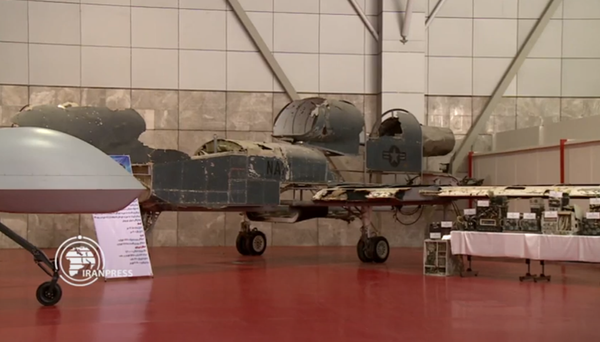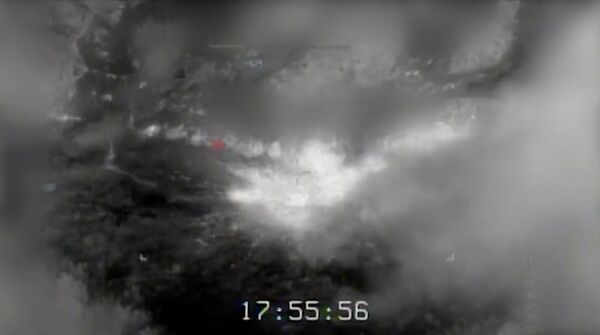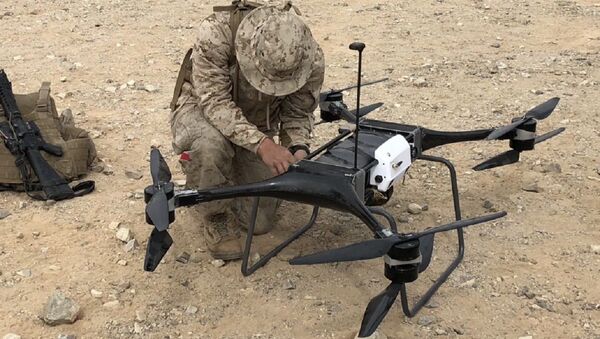New technologies such as drones and artificial intelligence have allowed governments to take a remote approach in carrying out assassinations, often with operatives stationed thousands of miles from their targets. Looking at assassinations in the present day, we spoke to Dr. Paul Maddrell, a lecturer in international history and international relations at Loughborough University.

Sputnik: Can you tell us more about this new age of assassinations? Have assassinations become more or less common in recent years?
Dr Paul Maddrell: They've become more common in recent years, and they're now a major feature of international politics and conflict, and more and more states are using them. The drone I suppose, is the main weapon of assassination. So, the drone will be operated from let’s say Nevada; so, the killer will be in Nevada, and will be using the drone and will be flying over Pakistan. The drone will be equipped with cameras, the images will be beamed back to Nevada, so therefore the killer/the operator, can operate the drone and can see his target even at night - the drone can image at night and can kill the target at night - and the drone can search for people with particular characteristics, it can be programmed to search for people with particular characteristics, thus to filter through people, search only for men eliminate women and so on, and thus can target an individual, and the killer can act from many thousands of kilometres away.
Sputnik: How has new technology influenced and changed assassinations in the present day?
Dr Paul Maddrell: They've made individuals much easier to track. It's possible to put people under very, very, sophisticated surveillance and therefore since they can be placed under surveillance and identified, it's made them much easier to kill. And the killer can be enormous distances away, the weapon will be closer, but the killer can be enormous distances away.

Sputnik: Are there examples of recent assassinations which have actually prevented future mass conflict?
Dr Paul Maddrell: Usually those states that use them, to prevent proliferation, are rare - it's really only Israel that does that. The reason is that proliferation depends on very large teams of scientists, and engineers, and technicians. To have a proliferation project, to have a WMD project, you have to have a large scientific establishment and therefore there's no one individual who would be crucial. So, the murder of Fakhrizadeh, Mohsen Fakhrizadeh, at the end of November, that won't stop the Iranian nuclear project. It's very rare, and it's almost a psychological weapon rather than a practical weapon. Most of the victims tend to be terrorists, the aim is to disrupt the terrorist organisation and prevent it from being able to carry out attacks, and again Israel has done that with considerable success against Hezbollah, against Hamas, and so on, against Fatah and so on. But the United States now does it on a very large scale as well, against its foes Daesh*, Al Qaeda, and so on.

Sputnik: Can we expect to see high profile assassinations continue?
Dr Paul Maddrell: I think so. The reason is terrorism is increasingly common, terrorist foes are around, and therefore more states are going to have an incentive to kill, and there are also proliferation projects. Israel is currently the only state that does, because of its great security but there's no certainty that it will remain so. Counter-proliferation can be countered by that means; therefore, I think assassination will continue to be a very common tactic, certainly for the foreseeable future. For as long as there is this form of problem with terrorism, is it's not war but you've got to kill the terrorists, the states want to kill the terrorists, but they can't do so in any way that's governed by the Geneva Conventions and the laws of war. So, the Geneva Conventions allow states to kill, but there are circumstances in which of course they can't, if they surrendered, and so on. But terrorists are permanently dangerous and there's no international legislation governing how to deal with them. Therefore, states have an incentive just to kill them and for as long as terrorism remains a danger, a considerable danger as it will for a considerable period of time, for the foreseeable future, states will have a considerable incentive to assassinate terrorists and will do so.
*Daesh (IS/ISIS/ISIL) is a terrorist organisation banned in Russia and in many other countries.



